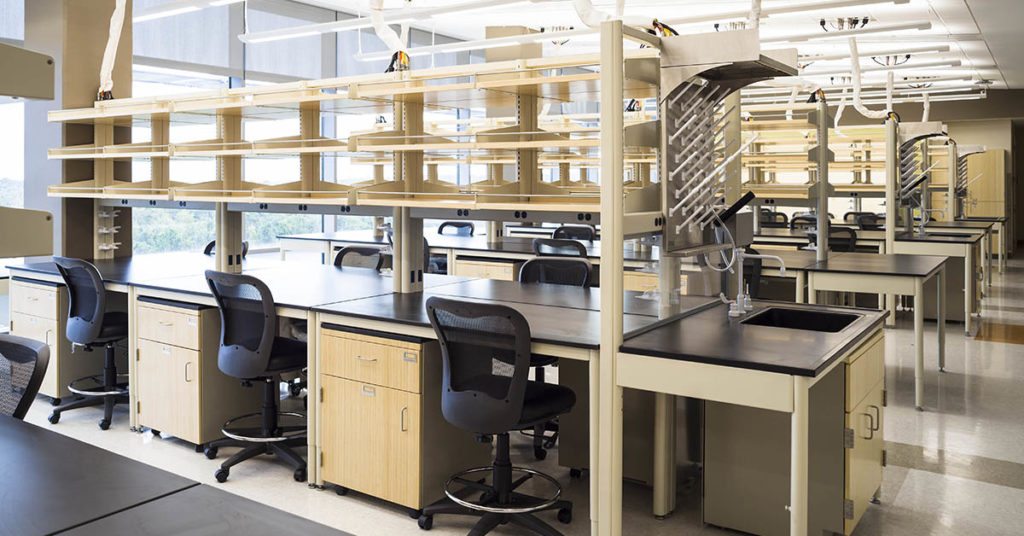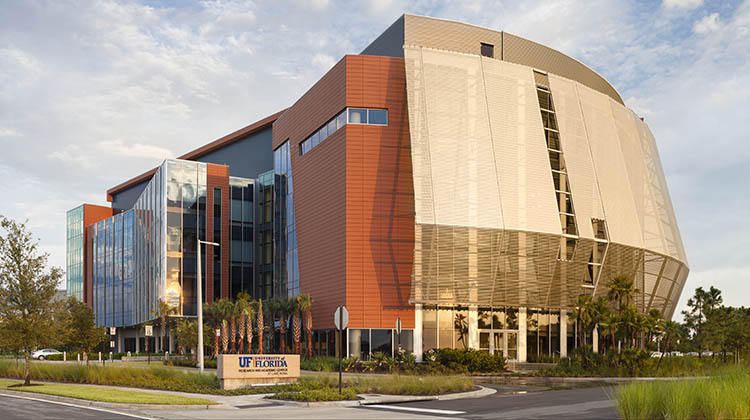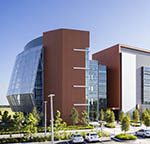
Imagine if there was a way medical researchers could solve major public health problems without embarking on massive clinical studies that are costly, time-consuming, and expose individuals to drugs without knowing what the impact will be. Now there is – and it’s happening every day right here in Lake Nona at the University of Florida Center for Pharmacometrics & Systems Pharmacology.
Led by Lawrence J. Lesko, Ph.D., F.C.P., the center helps scientists study the possible clinical outcomes of drugs to find out how they might benefit patients through biosimulation. This process involves using computers and mathematical software to simulate biological processes and systems. Biosimulation is truly a simulation of virtual patients and clinical trials. “Instead of doing clinical studies, computer models are built of virtual patients. Once the virtual patients are in place, you can start understanding questions such as, ‘What happens if the patient being studied is less than 75 years of age? Is the Alzheimer’s drug still just as effective?'” Dr. Lesko says. “Trying to determine what is going to happen to a 95-year-old patient isn’t easy, unless you do a clinical trial. With this modeling program, you can determine what might happen without having to go through all of the clinical trials.”
“The best part about biosimulation is that the pharmaceutical industry has adopted it as a mini-science,” says Dr. Lesko. The Food and Drug Administration (FDA), where Dr. Lesko spent 20 years, and other regulatory agencies responsible for approving drugs for public consumption use biosimulation to help make their regulatory decisions. At University of Florida in Medical City, the staff leverages that technology to help increase value for public health by answering questions that were unanswerable before. “Much of work here is what I call applied research as opposed to basic research. I also call it translational research, which means we’re taking information from this part of the scheme and translating it to something that would be useful for humans. That’s called translational medicine,” Dr. Lesko says.

“We’re trying to take what we know to be true here from the basic researchers and eventually trying to translate it into what’s useful for drug developers and the FDA and eventually to physicians.” The center is outfitted with large computer capacity to handle tremendous amounts of data. With the help of the system at the University of Florida, models can easily be built that also can generate data quickly.
“Biosimulation, also known as modeling simulation, is paving the way for precision medicine,” explains Dr. Lesko. The term was used by President Obama in the January 2015 State of the Union Address. Also known as personalized medicine, the term is about “delivering the right treatments, at the right time, every time to the right person.” The whole biosimulation process begins by building a system component. “The system component is basically your body. We know about your cardiac output, your blood flow to your tissues, your body weight, how fast you might metabolize drugs,” Dr. Lesko says. “Step B is then the drug attributes. This could be considered a generic thing. We can build a model for a healthy volunteer and a model for a sick, elderly guy. We build these models that are system based. We take into account age-related changes in physiology, disease-related changes and whatever happens in your body.”
Once the researchers have this module, they study the drug and its characteristics. “A certain percent is absorbed. A certain percent goes out to the kidneys. A certain blood level leads to a clinical response. A certain dose leads to toxicity. When we know that, we connect it with the systems model, and that forms the basis for the virtual patient. Now we can answer questions that you would have about that drug or the patient by tinkering with the model,” Dr. Lesko continues.
In addition to providing valuable information to the FDA, the research performed at the Center for Pharmacometrics & Systems Pharmacology provides valuable education to the medical community. Professors such as Dr. Lesko often give presentations and lectures at the neighboring UCF Medical School and Orlando Veterans Affairs Medical Center.
“The final piece is data. Data is like gold. It’s like going to a gold mine and getting data because that’s what drives our entire business. Everything we do is getting data, analyzing the data, translating it into decisions, and then bringing value to public health. That’s our core mission,” Dr. Lesko says.


